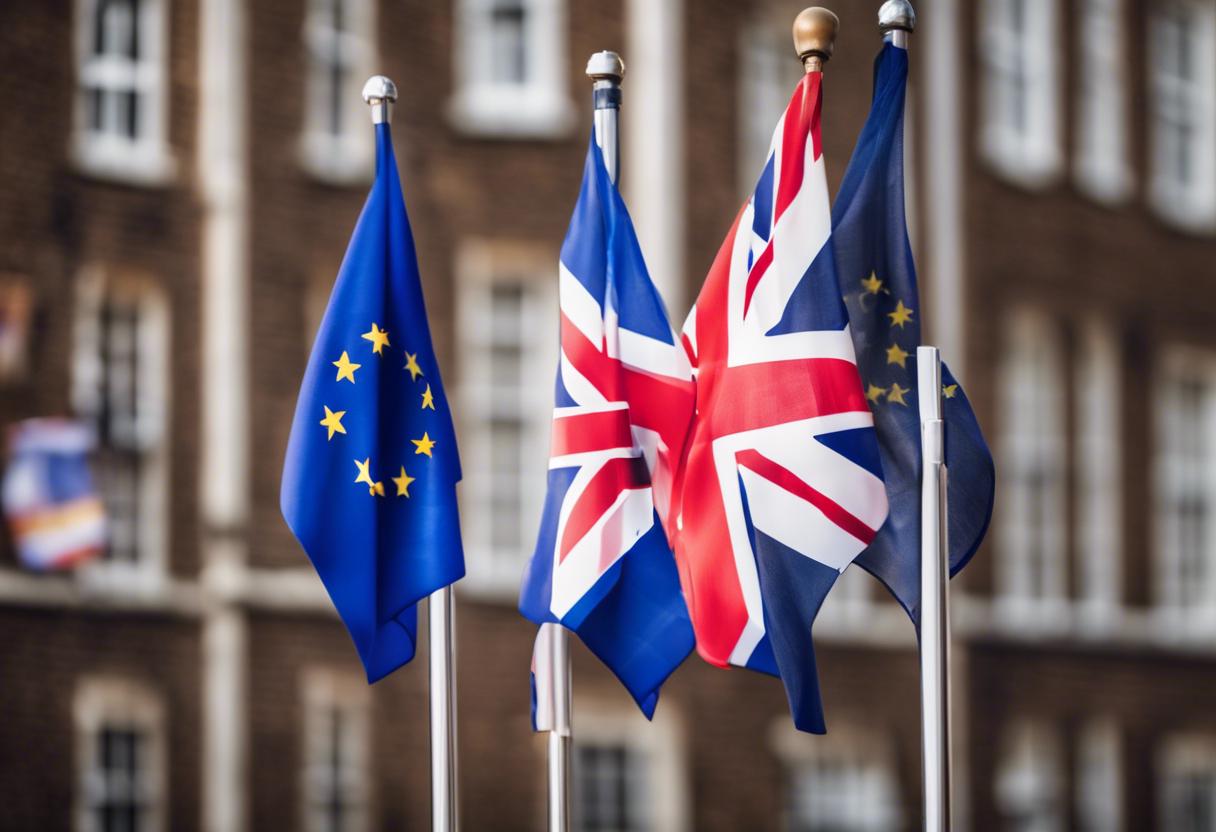According to a high-ranking German Member of the European Parliament (MEP), there’s a chance for swift progress in developing stronger collaborative ties between the UK and the European Union, particularly in the areas of defence and foreign policy. A meeting is anticipated in Brussels between UK Prime Minister Keir Starmer and Ursula von der Leyen, the President of the European Commission, as expectations rise for improved relations between the two parties under the Labour government.
David McAllister, the German MEP who leads the European Parliament’s foreign affairs committee, believed there was potential for quick strides in defence co-operation, provided both parties were willing. Despite an initial reluctance to renegotiate previously agreed contracts, he highlighted defence and security as areas that were overlooked in the Brexit deal.
The EU and UK are not strangers to collaboration, having previously worked together to support Ukraine during its conflict with Russia. McAllister proposed that an official defence pact might lead to improved sanction coordination and allow the UK to have a closely-knit relationship with the EU’s plans to develop the European defence sector.
Despite the potential for camaraderie, McAllister highlighted his disappointment towards the UK government for dismissing the possibility to rejoin the Erasmus programme, a scheme allowing university students to study abroad for a year. The readiness to find middle ground is what will eventually determine the success of the Starmer administration, added McAllister.
Officials from the European Commission have publicly and privately managed expectations for any significant decisions to result from the meeting between Starmer and von der Leyen, branding the meeting as the “start of a discussion”. The conversation will allow both parties to explore a potential path forward, as both sides have expressed interest in a reset.
Other potential areas for collaboration include a trade deal for the veterinary industry to eliminate checks on livestock and food movement between the UK and the EU and a treaty simplifying the process for young people to move between the two areas for education or employment.
So far, Mr Starmer has shown discretion when debating the issue of youth mobility. He fears it could be interpreted as an attempt to resume free movement between the EU and the UK. Numerous EU officials associated with post-Brexit relations feel a security and defence contract would be an easy achievement, while agreements in other domains might be fraught with political complications. On Monday, an assembly of ambassadors from 27 EU nations demonstrated a generally positive attitude towards the potential for more favourable ties with the UK, as explained by two insiders who were privy to the talks. Furthermore, many ambassadors emphasised during these discussions that the EU must ensure that the UK is keeping to its pre-established agreements, added the informants.

